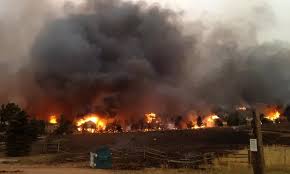The Destructive Power of Fire: Understanding the Impact and Importance of Fire Safety
Fire, a force of nature that has both mesmerized and terrified humanity for centuries, possesses a destructive power that can ravage landscapes, homes, and lives in mere moments. From wildfires that engulf vast expanses of forests to house fires that leave families homeless, the impact of fire is profound and far-reaching.
While fire has been a crucial element in human history for warmth, cooking, and industry, its uncontrolled presence can result in catastrophic consequences. The need for understanding fire safety measures and prevention strategies is paramount in safeguarding communities and individuals from its devastating effects.
The Causes of Fire
Fire can originate from various sources, including electrical faults, open flames, flammable materials, and human error. Whether accidental or intentional, the spark that ignites a fire can quickly escalate into a blaze that engulfs everything in its path.
The Importance of Fire Safety
Implementing effective fire safety practices is essential in mitigating the risks associated with fires. This includes having working smoke detectors in homes and buildings, creating evacuation plans, maintaining fire extinguishers, and conducting regular fire drills.
Prevention Strategies
Preventing fires requires a collective effort from individuals, communities, and authorities. Properly storing flammable materials, adhering to building codes and regulations, educating children on fire safety protocols, and exercising caution when using heat sources are all crucial steps in reducing the likelihood of fires.
In Conclusion
Fire is a formidable force that demands respect and vigilance. By understanding the destructive power of fire and prioritizing fire safety practices, we can work together to protect lives, property, and our environment from its devastating impact.
6 Essential Fire Safety Tips for Your Home and Workplace
- Keep flammable items away from heat sources.
- Install smoke detectors in key areas of your home or building.
- Have a fire extinguisher readily available and know how to use it.
- Create and practice a fire escape plan with your family or colleagues.
- Never leave cooking food unattended on the stove.
- Avoid overloading electrical outlets or using damaged cords.
Keep flammable items away from heat sources.
It is crucial to keep flammable items away from heat sources to prevent the risk of fire. Placing materials such as paper, cloth, or chemicals too close to sources of heat, like stoves, heaters, or electrical appliances, can easily lead to ignition and potentially catastrophic consequences. By maintaining a safe distance between flammable objects and heat-emitting devices, individuals can significantly reduce the likelihood of accidental fires and ensure the safety of their surroundings.
Install smoke detectors in key areas of your home or building.
Installing smoke detectors in key areas of your home or building is a critical fire safety measure that can save lives and property in the event of a fire. Smoke detectors serve as early warning systems, alerting occupants to the presence of smoke and potential fire hazards. By placing smoke detectors strategically throughout your residence or facility, you increase the chances of detecting a fire in its early stages, allowing for timely evacuation and swift action to prevent the spread of flames. Regularly testing and maintaining smoke detectors ensures their effectiveness and reliability, reinforcing the importance of this simple yet lifesaving precaution.
Have a fire extinguisher readily available and know how to use it.
Having a fire extinguisher readily available and knowing how to use it is a crucial fire safety tip that can make a significant difference in emergency situations. A fire extinguisher can be a lifesaving tool when faced with a small fire that needs to be quickly contained before it escalates. It is important to familiarize yourself with the type of fire extinguisher you have, understand its proper operation, and regularly check its condition to ensure it is ready for use. By being prepared and equipped with this essential firefighting device, you can take proactive steps to protect yourself, your loved ones, and your property in the event of a fire.
Create and practice a fire escape plan with your family or colleagues.
Creating and practicing a fire escape plan with your family or colleagues is a crucial step in ensuring everyone’s safety in the event of a fire emergency. By establishing clear evacuation routes, designated meeting points, and assigning responsibilities, you can minimize confusion and improve response time during a crisis. Regularly rehearsing the escape plan helps to familiarize everyone with the procedures and builds confidence in executing them efficiently. Prioritizing preparedness through proactive measures like this can make a significant difference in protecting lives and property when faced with a fire incident.
Never leave cooking food unattended on the stove.
It is crucial to never leave cooking food unattended on the stove. Unattended cooking poses a significant fire hazard, as even a momentary distraction can lead to a potential disaster. By staying vigilant and attentive while cooking, individuals can prevent kitchen fires and ensure the safety of themselves and their surroundings. Remember, practicing caution in the kitchen is essential in minimizing the risk of fire-related incidents.
Avoid overloading electrical outlets or using damaged cords.
To prevent the risk of fire, it is crucial to avoid overloading electrical outlets or using damaged cords. Overloading outlets with multiple devices can lead to overheating and potential electrical fires. Similarly, using damaged cords or frayed wires increases the likelihood of a short circuit or electrical spark, which can ignite a fire. By practicing caution and ensuring that electrical outlets are used safely with undamaged cords, individuals can significantly reduce the risk of fire hazards in their homes or workplaces.

